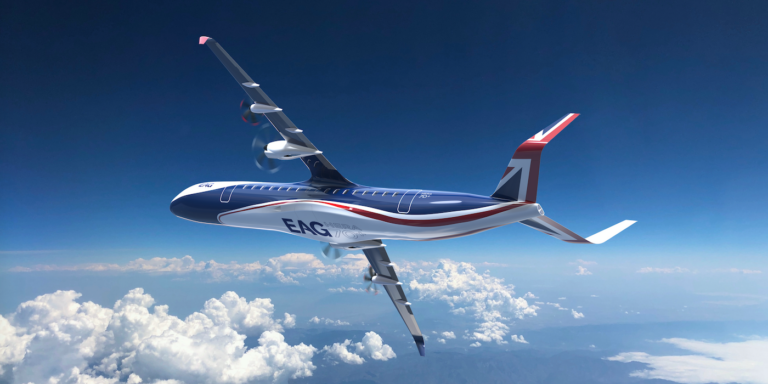Ed Davey, the Acting Leader of the UK political party, Liberal Democrats, has outlined a proposal for a plan to make all domestic UK flights zero carbon by 2030. Davey states that the UK has a unique opportunity to be at the forefront of an environmentally sound aviation technology that will ‘boost growth, help solve the noise and air pollution crisis in our cities, and make sure that our Covid-19 recovery is truly green’.
This statement follows EAG’s reveal of the first hybrid-electric 70+ seat aircraft design.
Davey has also drawn upon his experience as Secretary of State for Energy and Climate Change to propose how the UK Government can invest to bring about radical green change in a short timeframe.
Davey’s five-point plan for green flight for the first five years of the 2020s:
- A new £1.5 billion innovation fund designed for universities to focus on both electric and hydrogen options. The initiative would include special prize competitions aimed at specific technical challenges, including increasing battery capacity and lowering battery and aircraft weight, with a view to boosting the technology and research excellence the UK has in this field at many organisations such as Cranfield University.
- A second £2 billion innovation fund for SMEs and start-ups, delivered with a combination of grants, tax incentives and zero percent loans, for the design, development and trialling of new electric and hydrogen airplane technologies.
- A £5 billion funding offer to Britain’s existing aerospace industry and airlines, based around a new ‘pound for pound’ investment scheme, to incentivise them to help develop technology and to partner with UK universities and SME and start-up sectors. The party also proposes setting up a retraining fund of £100m to support those in today’s aircraft industries as they transition to the new zero-carbon aerospace sector.
- An international co-operation drive, based around the UK hosting COP26, to create both a global target for green flight technology development and the rapid development of new international flight regulations ready for zero-carbon flight technologies.
- A new taskforce to prepare new regulations and training schemes so the UK is ready for “wheels up” in 2030.
“To achieve green-powered planes on all domestic routes by 2030 will take a major step-change in funding and ambition from Government; this is more important than ever considering the impact the Coronavirus crisis has had on the sector,” stated Davey.
“Whether the winning technology is electric aircraft or hydrogen aircraft or both, more rapid progress to green flight will mean shorter runways, quieter aircraft, better air quality, and the real possibility of achieving net-zero carbon ahead of 2045.
“The Liberal Democrats have always pushed for the UK to be at the heart of global innovation, this needs to be the UK’s “moon landing mission” for the 2020s, and with the experience I gained in leading Britain’s renewable power revolution, I’m convinced we can have a green air flight revolution too.
“If we harness the power of green technology we can save jobs and create jobs, and give hope to people in communities across our country. Green flight could be one of the next transformational technology shifts, and the UK must be at the forefront of this new era of aircraft.”
Former CEO of Siemens UK, Juergen Maier added, ”The UK can be a global leader in this exciting zero-carbon flight technology revolution. We have significant expertise at universities like Cranfield and tremendous engineering companies like Rolls-Royce and Airbus that can be our leaders. It is essential for our planet and will provide significant employment opportunities as we transition from old to new green aerospace technology.”





